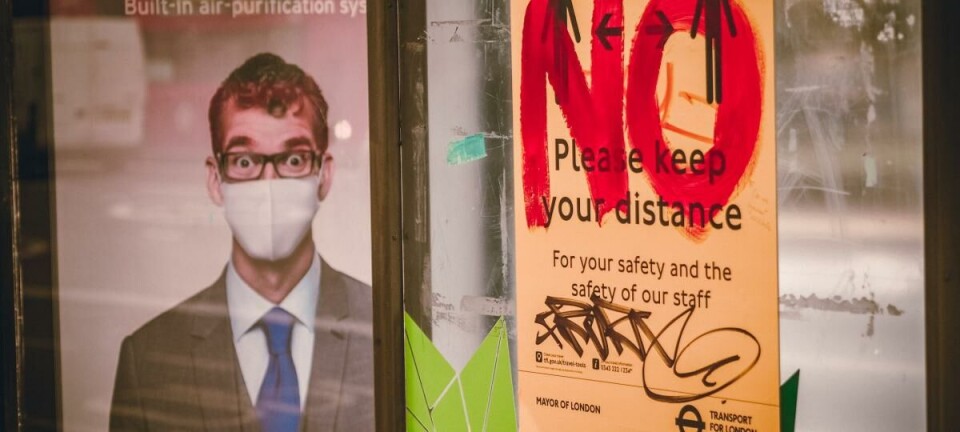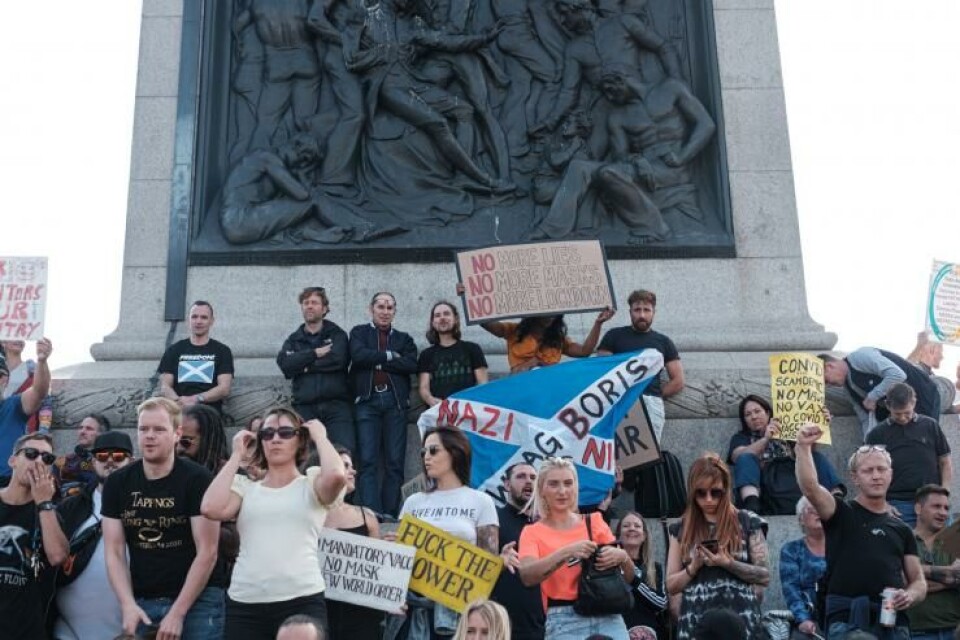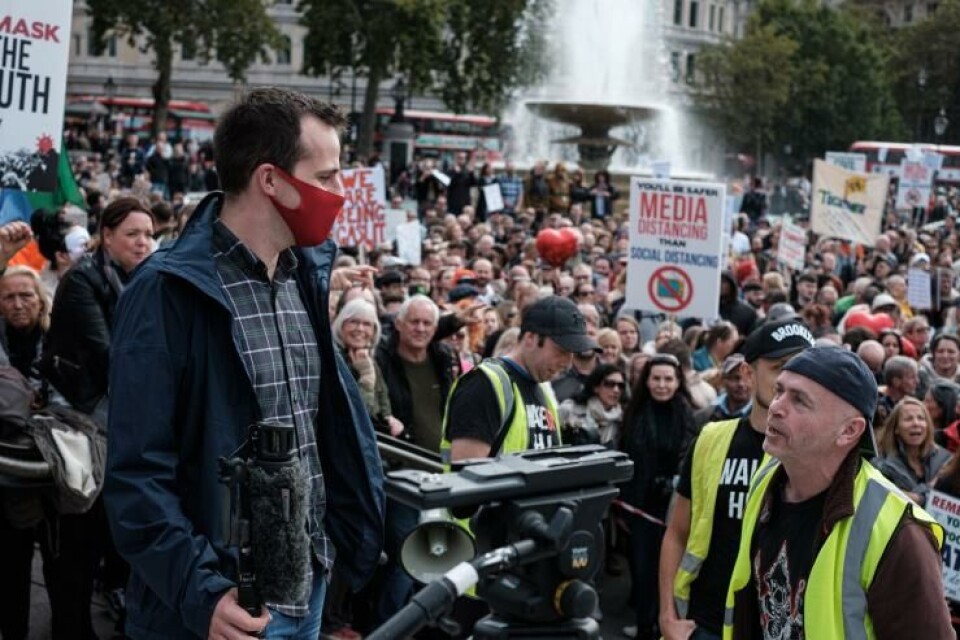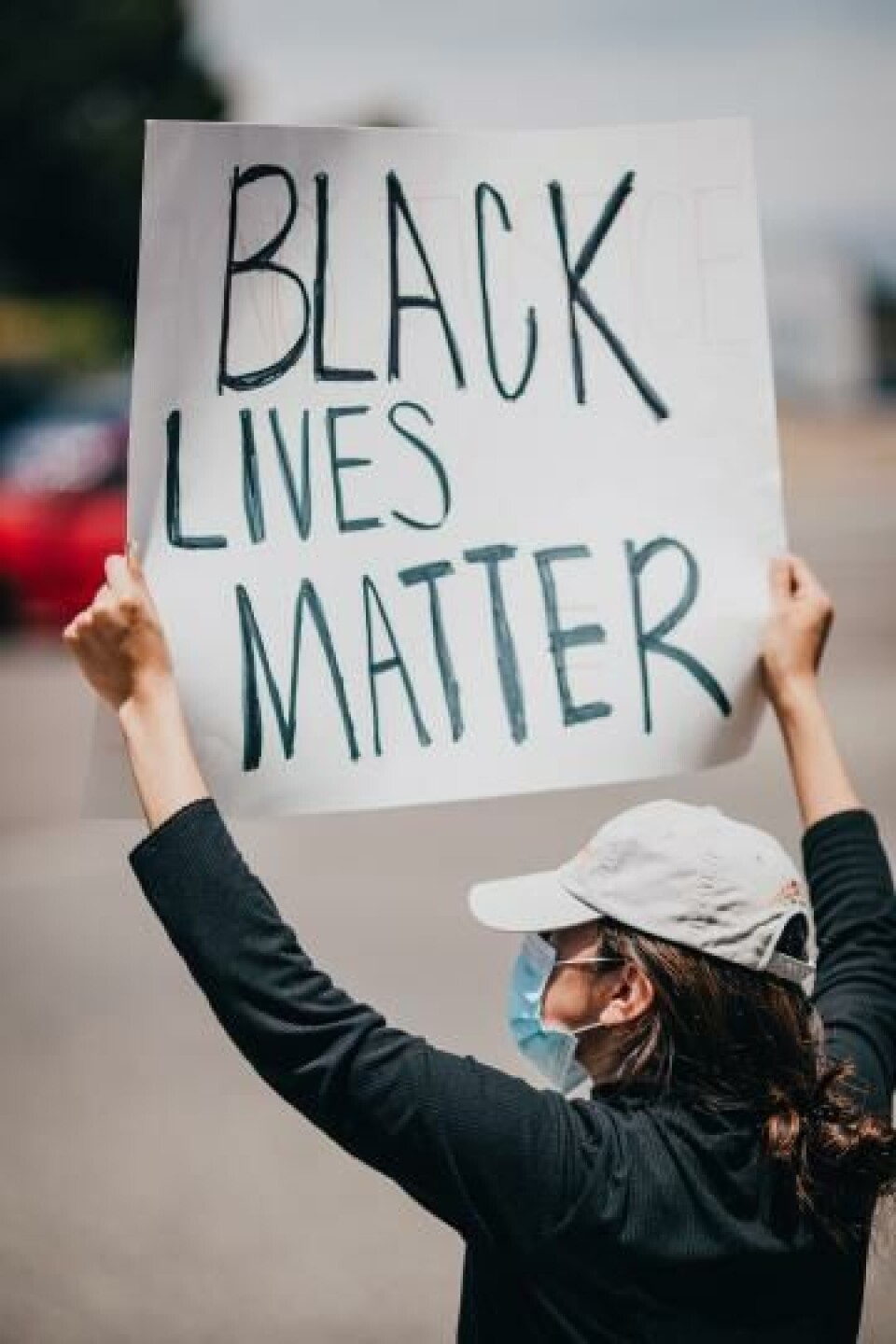article> Opinion/Politics
Protesting Government Measures to keep COVID-19 at bay: Justified activism?

Is there any sense in the comparison of the anti-lockdown demonstrations and the Black Lives Matter demonstrations during lockdown?
By Marit Pepplinkhuizen
Opinion & Politics Section Editor
"21 arrested at lockdown protests in London", "Protests against curfew get out of hand in the Netherlands", "200 arrests at Brussels anti-coronavirus protests". After almost a year into government restrictions to keep COVID-19 at bay, we are hardly surprised anymore by these kind of headlines. A pertinent question, however, is whether theprotesters are justified to demonstrate against the government measures, since they thereby infringe the individual right of other people to stay safe.
The issue with accepting that a government can impose restrictions on how people live is linked to the perceived legitimacy of government figures having the power to do this. Yet, how do you legitimize politics? That is one of the problems with democracy. In modern times, the religious backing of politics and society has disappeared. However, without religionand the divine endorsement that comes with it, what is the foundation of politics?
In the 17th century, a new bottom-up view of society was established, as existing for the protection and mutual benefit of its (equal) members. Social contracttheories coined the term “the general will”: society obeys a social contract, which means that they come to an agreement to obey the general will. One of the most famous social contract thinkers, Jean-Jacques Rousseau, says that the general will consists in placing the common good of the community above the individual will of one person. A society of this kind presupposes trust and mutual commitment. The adage of the French Revolution, "Liberty, Equality, Fraternity", established the autonomy of the individual at all levels, yet, just as importantly, it established universal mutual support as an additional responsibilityof each individual.
In 2020, during the corona-crisis, several groups of citizens have gathered to protest the measures and regulations imposed by governments to keep the virus at bay. They have mostlyfound each other online, such as, in the Netherlands and Belgium, through #viruswaanzin (#virusmadness in Dutch). Viruswaanzin claims that their freedom has been curtailed by government restrictions such as social distancing and the mandatory use of facemasks, and say that thesemeasures are not in the public interest. Reflected in these protests is the tension between the collective dimension of the social contract and individual freedom. In the case of the people who protest government restrictions due to COVID-19, the question is whether they should recognize that it is in the general interest to abide by the measures? Or is it rather, like for example British philosopher Bertrand Russell and French philosopher Benjamin Constant maintain, that in the situation of a social contract there is a danger that the ruling class is the only one who can determinewhat is useful for the community and what is not?

Protest against masks and government restrictions by Stand Up X in Trafalgar Square, London, United Kingdom.
The state, naturally, has to meet some requirements to be legitimate, for example,it has to be the bulwark of freedom and locus of expression of its citizens. The main argument of the protesters against government restrictions is that their freedom is being threatened by measures enforced by the government.
Could government claim to rule not in their own name but in the name of the general will?
However, as contemporary political philosopher Philip Pettit argues in his book Republicanism: a Theory of Freedom and Government, “being unfree does not consist in being restrained, on the contrary, the restraint of a fair system of law - a non-arbitrary regime - does not make you unfree. Being unfree consist rather in being subject to arbitrary sway.” Everything hangs, thus, on whether the interference in question is arbitrary. It is, in other words, about finding the right constraints, the ones that do not reflect the arbitrary will of another, but that can be seen as reflecting the will and interests of the public.
The difference between arbitrary sway and legitimate interference becomes clear when we compare a mugger’s threat with tax requirements. A person’s freedom is affected in a qualitatively different and more serious way by the mugger’s threat than by tax agencies. Although both the mugger and the tax agency threaten to interfere unless they get what they want, only the mugger’s threat undermines freedom. This is because the mugger’s power is arbitrary – somehow uncontrolled or unconstrained – while the tax agent’s is not. Furthermore, tax rules, regulations, and so on ultimately bring the agency under the control of the people.

Protest against masks and government restrictions by Stand Up X in Trafalgar Square, London, United Kingdom.
On the other hand, Charles de Montesquie, who famously invented the trias politica (seperation of powers in government) states that tyranny consists in isolating subjects from the tyrant and from each other through mutual fear and suspicion. Hence, some protesters argue that restrictions against being able to gather and having to wear facemasks have been imposed with the sole purpose of making people powerless and to instill fear in them. Seemingly in line with this, Montesquieu says that tyranny is not one form of government among others but contradicts the essential human condition of plurality, through the ability to act and speak together, which is the main prerequisite of all forms of political organization.
However, as contemporary thinker Charles Taylor brings to the fore, we live in a post-revolutionary climate. That means that, in this day and age, we are extremely sensitive to anything that smacks of the old regime and see backsliding even in relatively innocent concessions that we have to make to our freedom. In addition, nowadays we see freedom as something that we win by setting aside obstacles or breaking loose from external impediments, ties or entanglements. This type of freedom we see also reflected in the individualism that reigns in democratic societies and to which the protesters of government measures often refer by saying, for example, that it is “their individual choice” to wear a mask or not. Individualism, defined by one of the greatest minds on liberal democracy, Alexis de Tocqueville, refers to the idea that we can be free by a withdrawal from society into a narrow circle of family and friends. However, as Tocqueville writes in his Democracy in America, this leads to isolation from the public and the abandonment of society. While subverting a sense of public duty, individualism extolls private life, eventually threatening political freedom, because “general apathy” which is the consequence of individualism breeds a profound indifference toward the public realm.
As Tocqueville advises democratic peoples, the attainment of freedom is not simply a matter of restraining those in power or of making government ultimately responsible to the people, for it depends on the habits and traditions of the people as well.
People who champion individualism will lose the habit of gathering for political purposes. Therefore, championing individualism is not the way to go to retain individual freedom, since that will make people powerless against their government.

The most important questions about the seeming opposition between the social contract and individual freedom for these COVID times are, to my mind: how should people who feel wronged by their government’s actions against the spread of the virus react? Is it morally justified to refuse to abide by the measures? The answer to these questions is not evident and clear-cut, as can be seen from a comparison with theBlack Lives Matter (BLM) demonstrations that have also been taking place during lockdown, in parallel to protests against government restrictions. When comparing these protests, we see, first of all, that there is a major difference between protesting against government measures that are limited in time and are due to exceptional circumstances and demonstrating against systemic injustice that has existed for years and has no clear end in sight. It also seems disproportionate to say, as protesters against government restrictions have done, that BLM demonstrations are similar to their demonstrations in these COVID times. They may be similar in the sense that people are currently not allowed to gather in large numbers, and BLM demonstrations could place other people at risk just as much.
However, importantly, BLM demonstrators have reportedly worn facemasks and maintained social distancing, whereas protesters against government restrictions are demanding these measures be lifted and often do not follow them themselves while at protests. Also, it is worth taking into account that in the case of the BLM protests stemming from the death of George Floyd we are talking about the reaction of people in outrage towards a murder, which symbolizes the many other similar instances where people of color have unjustly lost their lives due to failings in the very institutions meant to protect us. The only comparable demonstration from government restrictions protesters would be if someone was brutally killed by these measures, not just once, but yet again after years of systemic discrimination resulting in the deaths of many people in similarly preventable ways. Of course, these protesters argue that the curtailment of their freedom is just as much a reason to say they cannot breathe anymore, yet, to my mind, that is not understanding at all the depth of the problem with the murder of George Floyd and the historical context surrounding it.
Hence, in my view, it seems that the protests of the government restrictions are only aimed at defending the small worlds of individualists, while activism employed to stand up for oppressed or marginalized groups is aimed at making the world a better place to live in for everyone. From this we can only conclude that, protests that only aim at protecting the individual’s own rights and freedom’s are morally reprehensible.
For more regular content
- Follow us on Facebook: https://www.facebook.com/thevoice.loko
- Check out our Instagram page: https://www.instagram.com/thevoice.kuleuven/
- Listen to our podcasts on: https://www.mixcloud.com/The_Voice_KUL_Student_Radio
For submissions or applications
- Email us at thevoice@loko.be
- Or message us on Facebook





